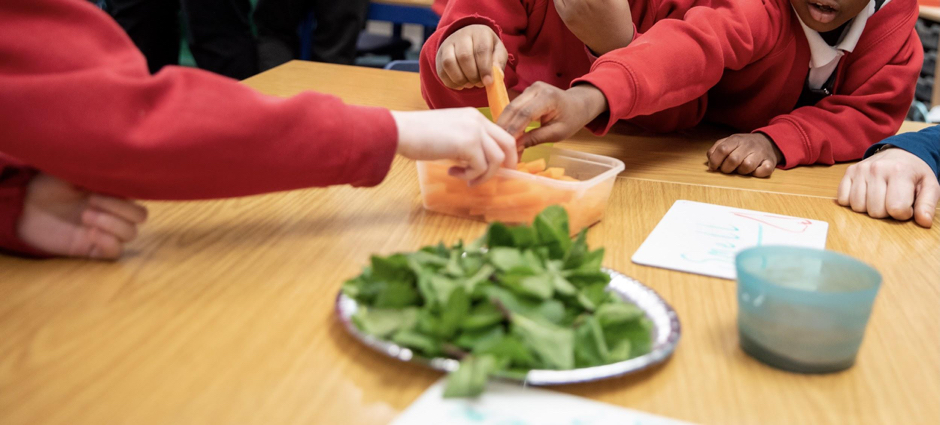It is important in the early years of life to learn about healthy eating because a balanced diet plays a key part in maintaining good physical and mental health as we grow up. It can help us:
- Maintain a healthy weight - this reduces the chances of suffering from long term health conditions
- Grow healthy – including supporting bone development and strength
- Keep good mental health
- Learn more about the world around us
Learning healthy eating habits from a young age increases the chances of healthy eating in adulthood.
The Healthy Tots programme has been developed to support your early years setting in teaching your children about healthy eating, so why not sign up here now?
TastEd

TastEd works with EY settings and primary schools, training practitioners in delivering sensory food education. Sensory food education is a fantastic way of helping children build a positive relationship with food and eating. This hands-on approach teaches children how to use all 5 senses (sight, smell, touch, hear, taste) to explore food and their own personal food preferences. It captures children's curiosity and gives them the opportunity to discover new foods which they may not have tried at home.
To find out more about TastEd and sign up for free please visit the website below;
Useful Websites
- The British Nutrition Foundation: on this website there is useful information for different life stages including information for babies - find information on breastfeeding and introducing solid foods. It's available by following the link baby.
- The British Nutrition Foundation: useful information available for toddlers/pre-school aged children including information on ensuring eating well and how children can learn about food and the importance of a healthy, varied diet is available in this link toddler and preschool.
- The Food Standards Agency: they have created a food safety management pack for registered childminders or child carers in domestic premises including information on creating safer food, food for good health and complies with food hygiene regulations available at this website nutrition.
- Better Health - Health for Families: For a range of healthy eating recipes and physical activity resources created by the NHS for children please visit tis website.
- The Caroline Walker Trust: a charity which aims to improve public health through good food. The charity have published an Eating well practical guide for children aged 1-4, and eating well during first year of life available at Caroline Walker Trust. The resources aim to help young children eat well and outlines important key foods developed for nurseries, child minders and preschools as well as parents.
- HENRY: this website offers help planning and cooking healthy family meals with simple recipes, making it much easier to prepare quick and balanced meals. For a range of ideas please visit the website for HENRY.
Leicestershire Trading Standards

Food allergies
The prevalence of food allergies amongst the population is unfortunately increasing and this is an extra responsibility for settings who cater for young children with a diagnosed food allergy. There are 14 legally recognised allergens in the UK which must be highlighted on a food label, this includes milk, cereals containing gluten, sesame and nuts.
 Guidance (Document, 15 Kb)
Guidance (Document, 15 Kb)When dealing with food allergies, it is important to understand food labels, the law and what it means. Here are some do’s and don’ts....
Guidance Documents
Menus, statutory framework and nutritional information
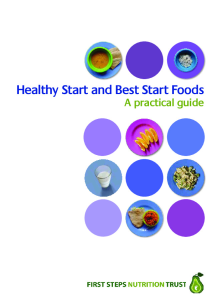 Health Start and Best Start Foods. A Practical Guide. (PDF, 3.2 Mb)
Health Start and Best Start Foods. A Practical Guide. (PDF, 3.2 Mb)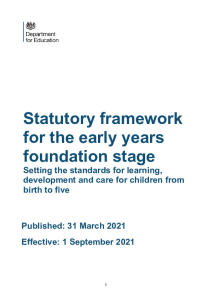 EYFS framework March 2021 (PDF, 371 Kb)
EYFS framework March 2021 (PDF, 371 Kb)Early years menus part 1 guidance (PDF, 506 Kb)
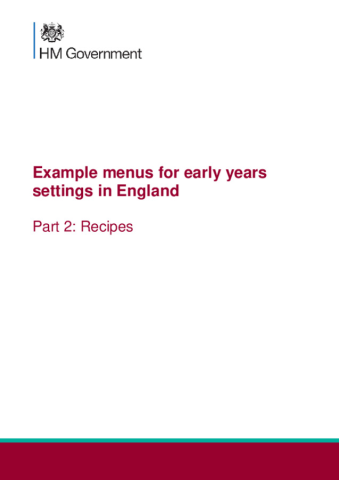 Early years menus part 2 recipes (PDF, 2.1 Mb)
Early years menus part 2 recipes (PDF, 2.1 Mb)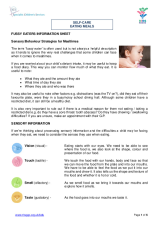 Fussy Eaters Information Sheet (PDF, 375 Kb)
Fussy Eaters Information Sheet (PDF, 375 Kb)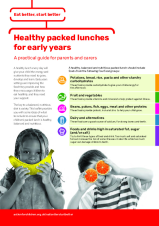 Healthy packed lunches for early years FACT SHEET (PDF, 1.1 Mb)
Healthy packed lunches for early years FACT SHEET (PDF, 1.1 Mb)This is a good fact sheet to share with families about what makes a healthy and yummy lunch box!
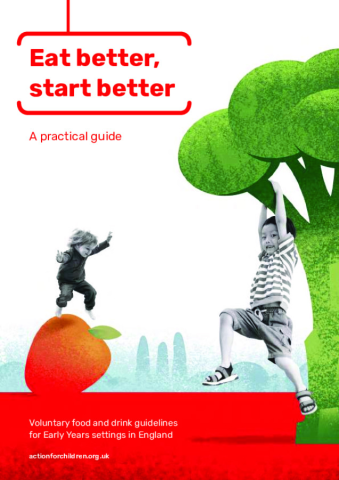 Eat Better Start Better1 (1) (PDF, 5.2 Mb)
Eat Better Start Better1 (1) (PDF, 5.2 Mb)

